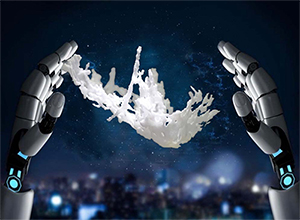
Imagine having the technology to predict a person’s odds of receiving a breast cancer diagnosis in their lifetime. The reality isn’t far off — artificial intelligence (AI) is already being tested, and more often than not, used in medical fields today.
Until now, personal risk was only able to be assessed by looking at statistics or recognizing a family history of the disease. When MIT Researcher, Regina Barzilay, was diagnosed with breast cancer herself she was inspired to rethink how mammograms are analyzed and cross-referenced amongst others to potentially predict which were more likely to develop the disease. The Washington Post wrote “It’s a marriage of tech and health care that could alter millions of lives without a single drop of medicine. “If the data is validated, I think this is very exciting,” said Janine T. Katzen, a radiologist specializing in breast imaging at Weill Cornell Medicine.
Not to be left out of the AI discussion, our team at Dr. Susan Love Foundation for Breast Cancer Research is also testing out and creating innovative ways of using AI diagnostics in the breast cancer field. Back in 2016, the National Institutes of Health (NIH) awarded the Foundation a $3 million grant backing the development and technology of a self-reading portable ultrasound device. This device can potentially be used in place of mammography to screen breast lumps, and it will provide better access to care for those in low-to-middle-income countries. You can learn more about this project here.
All of this new technology arising in the field of research is incredibly exciting. We are hopeful that the use of AI will have an incredible impact on the future of detecting and preventing breast cancer.
